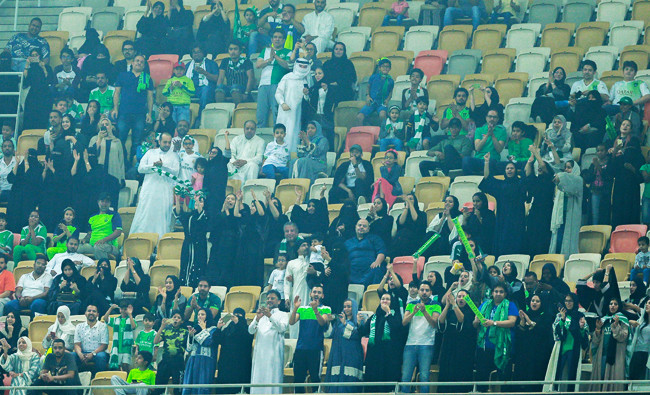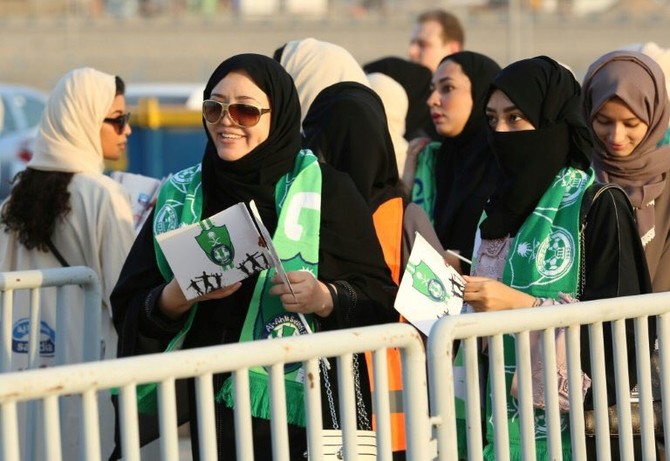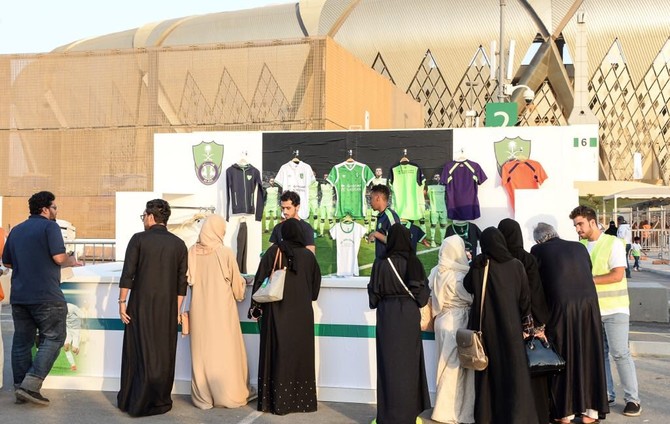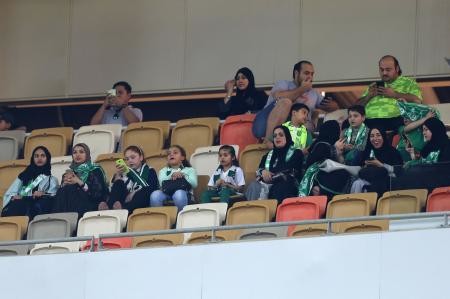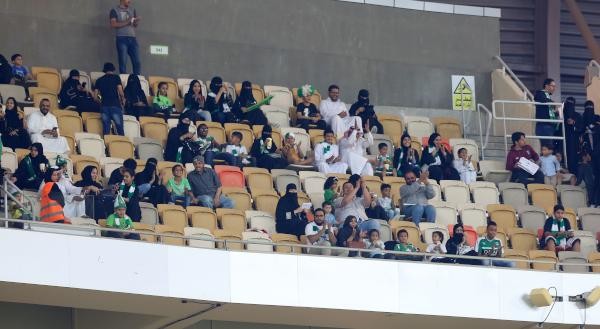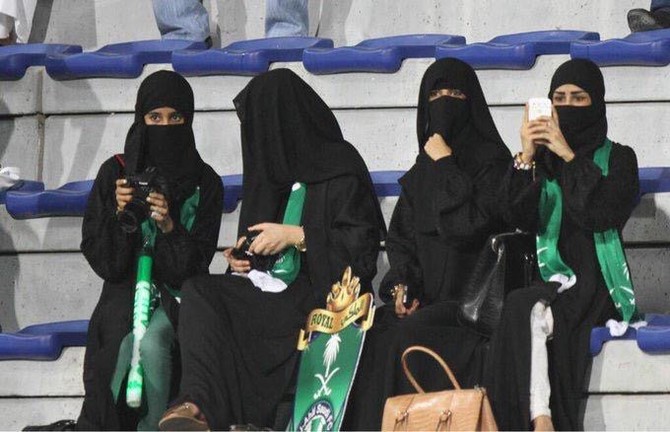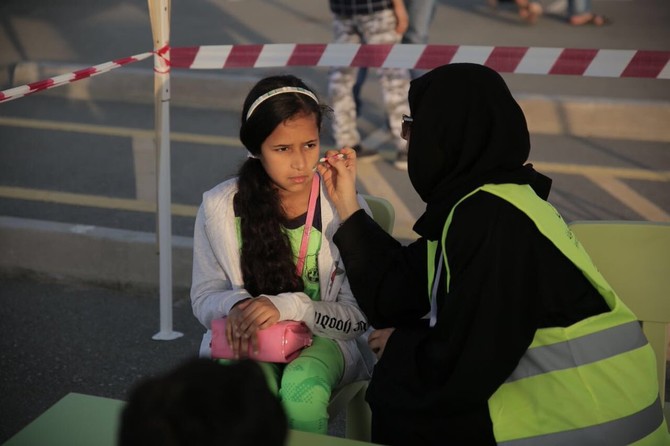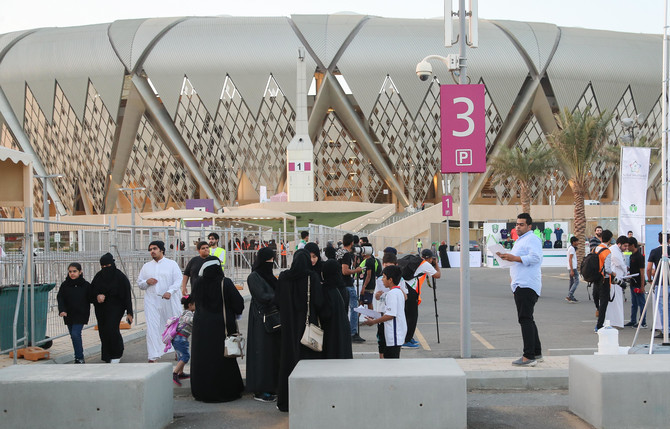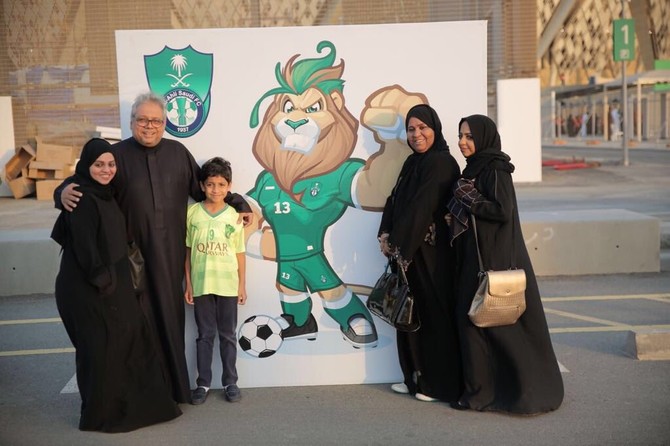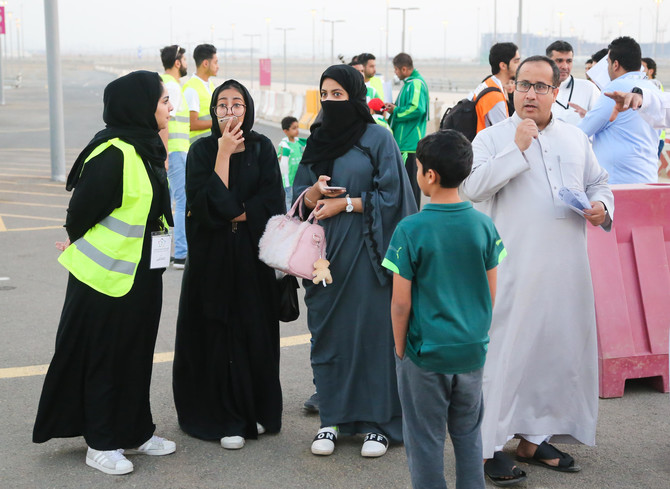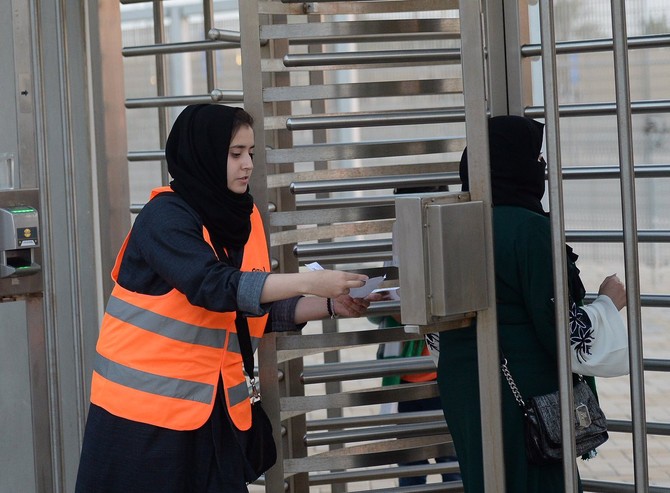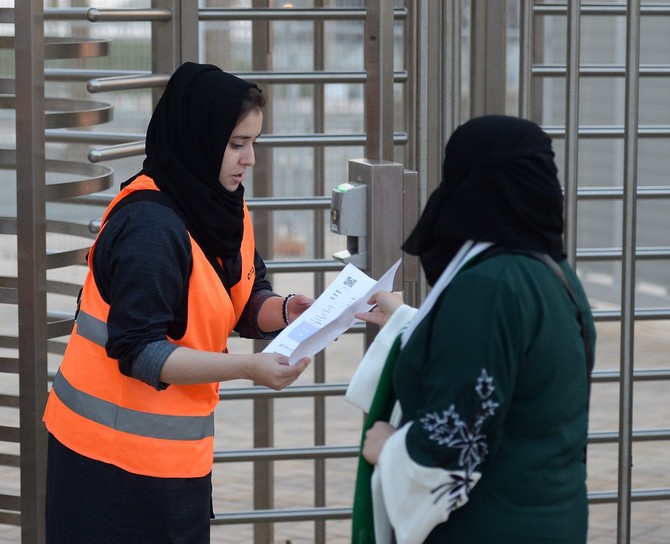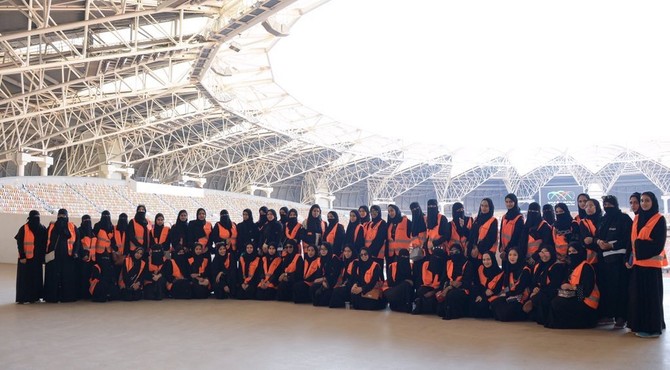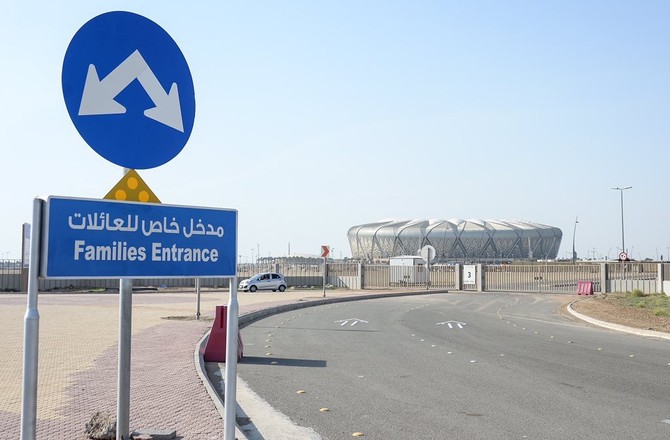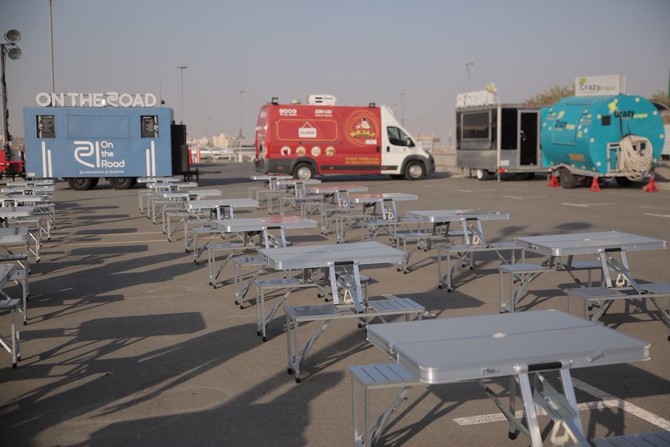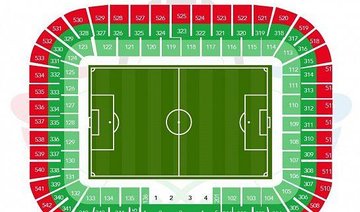RIYADH: Female fans were allowed to attend football matches for the first time in Saudi Arabia on Friday.
The first match that women attended was the Al-Ahli versus Al-Batin on Friday Jan. 12.
The Saudi Arabian government announced the lifting of the ban late last year and as a result, women now be able to enjoyed Saudi Professional League matches. The government directive said women would also be able to attend a second match on the following day (Jan. 13) and a third one on January 18.
LIVE: @Arab_News video shows female fans of @ALAHLI_FC chanting for their team inside #Jeddah’s Al-Jowhara stadium after a ban on women attending sports stadiums in #Saudi Arabia was lifted. https://t.co/Bl5Y8uKsCs
(AN video by Abedalziz Alakeel) pic.twitter.com/aNsCSk4nT0
— Arab News (@Arab_News) January 12, 2018
Women from across the vast Gulf kingdom may be able to take advantage of this new freedom as the first match will be held in the capital Riyadh, the second in Jeddah on the Red Sea and the third in the eastern city of Dammam.
The move is Saudi Arabia's first social reform planned for this year granting women greater rights.
To prepare for the change, the kingdom has designated "family sections" in the stands for women, separated by barriers from the male-only crowd. The stadiums have also been fitted with female prayer areas, restrooms and smoking areas, as well as separate entrances and parking lots for female spectators.
The General Sports Authority is preparing the surrounding squares in the King Abdullah Sports City (Al-Jawhara) with food trucks and a number of sporting and social events to create a distinctive social environment before the matches.
A host of events taking place whilst families enter the King Abdullah Sports City stadium.
As we speak;Saudi women fans are entering soccer stadiums! This is more than women’s rights: today’s match between Al-Ahli and Al-Batin, and the ones to follow,are opportunities for families to come together and enjoy KSA’s national sport- soccer!I’m rooting for the ladies-enjoy!
— Fatimah S Baeshen (@FatimahSBaeshen) January 12, 2018
The game was scheduled to kick off at 8:00pm, but enthusiasm for the historic encounter began well before the kick-off.
Lamya Khaled Nasser, a 32-year-old football fan from Jeddah, said she was proud and looking forward to the match.
"This event proves that we are heading for a prosperous future. I am very proud to be a witness of this massive change," she told AFP.
Women are making history in Jeddah today as #Saudi authorities for the first time allow them to enter a stadium to watch a football match :flag-sa::soccer: pic.twitter.com/dpGf6cPDUE
— Patrick Galey (@patrickgaley) January 12, 2018
Ruwayda Ali Qassem, another Jeddah resident, called Friday a "historic day in the kingdom which culminates (in) ongoing fundamental changes."
I am proud and extremely happy for this development," she said.
As a #Saudi #woman passionate about #football I am happy, extremely proud & delighted that this is reality from today. https://t.co/nKj3SwlD8f
— News on Saudi Arabia (@NewsOnKSA) January 12, 2018
Noura Bakharji, another Jeddah resident, said she always felt bitter when her brothers came back from stadiums to tell her about the excitement of watching football matches in person.
"I always watched games on TV while my brothers went to the stadiums... I asked myself repeatedly 'Why I can't go?'" she told AFP. "Today, things have changed. It's a day of happiness and joy."
Hours before the game, Saudi clubs were encouraging women to attend through tweets on social media.
Some clubs are offering special abayas — traditional head-to-toe robes for Saudi women — in team colours.
State-owned Saudi Airlines announced prizes of free tickets for five families who want to travel between cities to watch games.
This is great. Women of Saudi Arabia attending Jeddah stadium to watch a football match. #vision2030 https://t.co/DReIaZhsc0
— Maryam Manzoori (@MManzoori) January 12, 2018
Arab News spoke to local Al-Ahli supporter Rayan, who said: “Our whole family supports Al-Ittihad except me and my sister — we support Al-Ahli. We always try to watch the games together. I always feel bad leaving to watch some games in the stadium knowing that she can’t experience this special atmosphere. I always said ‘one day’ and now this is that day. It makes me so happy and proud that she can finally experience the excitement and drama of watching these games firsthand.”
Sara, a recent Saudi graduate from Northeastern University, stated the event was one of the first signs of increased female participation in sporting events and activities. “This is wonderful for us (Saudi) women, and I am sure there is more to come. A diverse and inclusive society will only serve as the base to positive progression for Vision 2030.”
Another Saudi woman that attended the game lent her voice. Lana, a fitness instructor based in Jeddah, said: “This was my first football match that I’ve ever attended, and It has been such a fun experience. I’ll always remember tonight. I salute our government for granting us these rights, and I can’t wait to attend again next week.”


